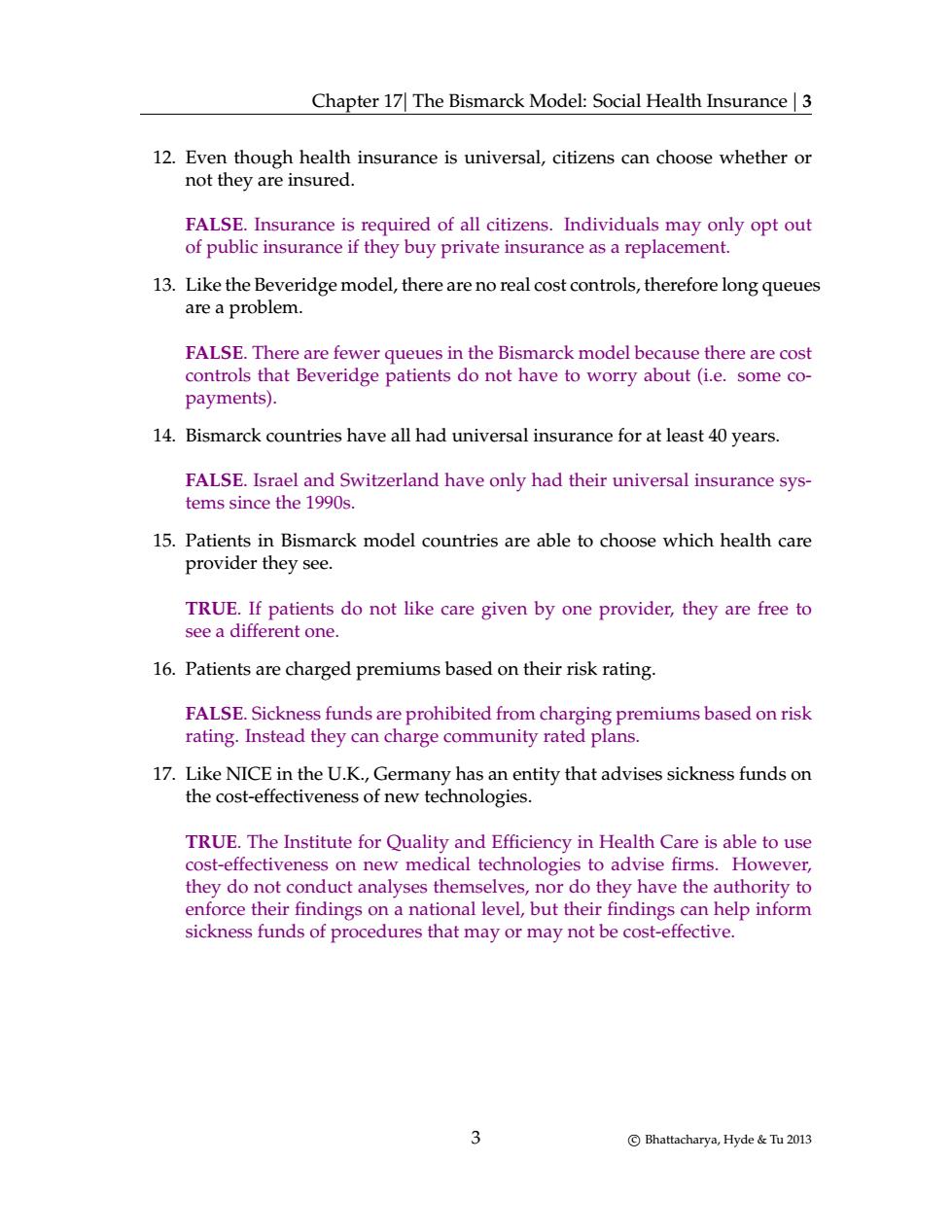正在加载图片...

Chapter 17 The Bismarck Model:Social Health Insurance3 12.Even though health insurance is universal,citizens can choose whether or not they are insured. FALSE.Insurance is required of all citizens.Individuals may only opt out of public insurance if they buy private insurance as a replacement. 13.Like the Beveridge model,there are no real cost controls,therefore long queues are a problem False.There are fewer queues in the bismarck model because there are cost controls that Beveridge patients do not have to worry about (ie.some co- payments). 14.Bismarck countries have all had universal insurance for at least 40 years. FALSE.Israel and Switzerland have only had their universal insurance sys- tems since the 1990s. 15.Patients in Bismarck model countries are able to choose which health care provider they see. TRUE.If patients do not like care given by one provider,they are free to see a different one 16.Patients are charged premiums based on their risk rating. FALSE.Sickness funds are e prohibited fro m ch arging premiums based on risk rating.Instead they can charge community rated plans 17.Like NICE in the U.K.,Germany has an entity that advises sickness funds on the cost-effectiveness of new technologies. TRUE.The Institute for Quality and Efficiency in Health Care is able to use cost-effectiveness on new medical technologies to advise firms.However, they do not conduct analyses themselves,nor do they have the authority to enforce their findings on a national level,but their findings can help inform sickness funds of procedures that may or may not be cost-effective. Bhattacharya,Hyde &Tu013Chapter 17| The Bismarck Model: Social Health Insurance | 3 12. Even though health insurance is universal, citizens can choose whether or not they are insured. FALSE. Insurance is required of all citizens. Individuals may only opt out of public insurance if they buy private insurance as a replacement. 13. Like the Beveridge model, there are no real cost controls, therefore long queues are a problem. FALSE. There are fewer queues in the Bismarck model because there are cost controls that Beveridge patients do not have to worry about (i.e. some copayments). 14. Bismarck countries have all had universal insurance for at least 40 years. FALSE. Israel and Switzerland have only had their universal insurance systems since the 1990s. 15. Patients in Bismarck model countries are able to choose which health care provider they see. TRUE. If patients do not like care given by one provider, they are free to see a different one. 16. Patients are charged premiums based on their risk rating. FALSE. Sickness funds are prohibited from charging premiums based on risk rating. Instead they can charge community rated plans. 17. Like NICE in the U.K., Germany has an entity that advises sickness funds on the cost-effectiveness of new technologies. TRUE. The Institute for Quality and Efficiency in Health Care is able to use cost-effectiveness on new medical technologies to advise firms. However, they do not conduct analyses themselves, nor do they have the authority to enforce their findings on a national level, but their findings can help inform sickness funds of procedures that may or may not be cost-effective. 3 c Bhattacharya, Hyde & Tu 2013